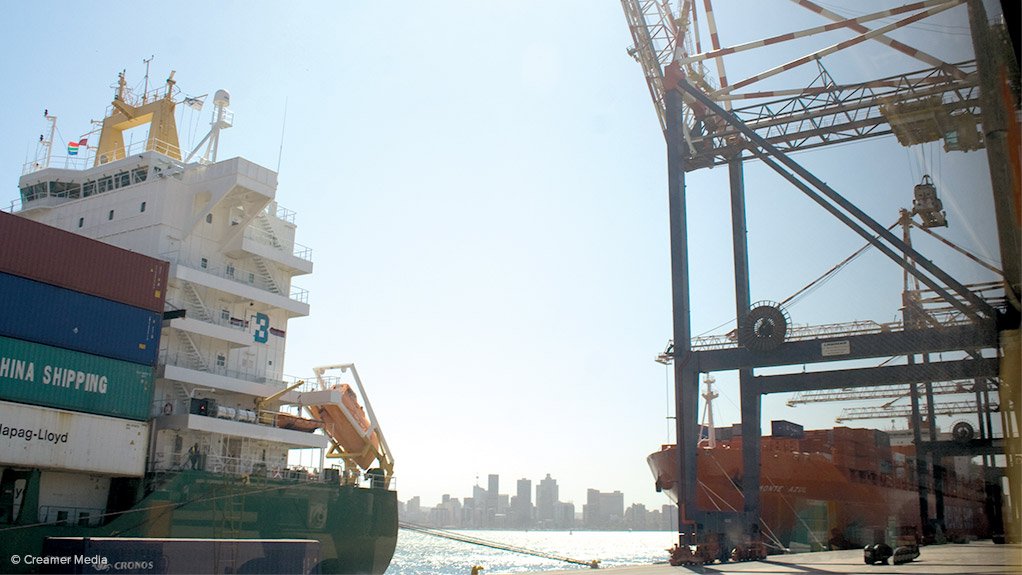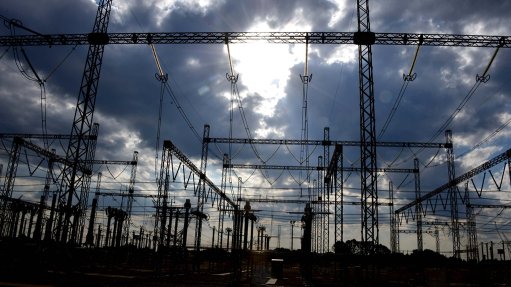Transnet aims to implement three private sector participation projects this year
Freight logistics group Transnet expects to proceed with three private sector participation (PSP) projects before the end of the year, with Public Enterprises Minister Pravin Gordhan confirming that the State-owned group’s new strategy is to drive volume growth “by developing key strategic partnerships in its core segments”.
Delivering his Budget Vote address on Tuesday, Gordhan said the transformation and reconfiguration of Transnet was under way to position it to meet the mandate outlined in South Africa’s Economic Reconstruction and Recovery Plan.
The plan prioritises the construction of social and economic infrastructure, including transport infrastructure, as part of South Africa’s recovery from years of economic stagnation that had worsened substantially as a result of the Covid-19 pandemic.
Gordhan indicated that investments worth about R100-billion were required to improve the country’s freight logistics networks and to reposition the Port of Durban “as an African and Indian Ocean hub for containerised cargo”.
Some of the new infrastructure would be delivered using a PSP model and Transnet CEO Portia Derby indicated that expressions of interest would be released to the market once all authorisations were secured.
She did not provide specifics, but said: “We have committed that at least three of the transactions get done in this financial year.”
Besides repositioning the Port of Durban, which a recent World Bank report ranked a lowly 349 out of 351 container ports assessed for its Container Port Performance Index 2020, with the Port of Ngqura ranking last, Gordhan said the PSP projects could involve both branch and mainline rail networks.
In his recent Budget Vote speech, Deputy Finance Minister David Masondo reported that some progress had been made in improving operations at the Port of Durban since the World Bank study was carried out, but that there was “still a long way to go to make our container ports internationally competitive”.
Masondo said a provision in the National Ports Act of 2005 for the corporatisation of the Transnet National Ports Authority was aimed at providing it with a degree of independence to enable it to treat all port operators equally and to invest its profits in the ports.
“However, there has also been policy contention within government regarding implementation of this structural reform, with the potential benefits in terms of port competitiveness being weighed up against the financial risks to Transnet.
“Together with the Department of Public Enterprises, Operation Vulindlela has been carrying out research on the implications and advantages and disadvantages of this structural reform, with a view to assisting Cabinet to reach a decision on this matter as soon as possible,” Masondo reported.
Meanwhile, Gordhan said that, in addition to container and automotive growth strategies, Transnet was enhancing its export growth capability in the bulk sector, focusing on mega corridors through the road-to-rail initiatives.
Questioned as to whether the road-to-rail battle had not already been lost on the Durban-to-Gauteng corridor, Derby acknowledged that it was the “hardest corridor to operate”.
However, she remained adamant that there were opportunities for Transnet to capture market share and reported that it had already managed to secure new manganese, chrome and grain volumes.
“[But] it is difficult, especially with cable theft where the route design from City Deep to Durban for a train is 20 hours and, because of cable theft, it can take us up to 38 to 40 hours.”
The use of locomotives on the corridor was also being “complicated” by cable theft, which was challenging Transnet’s previous assumptions regarding the mix of diesel and electric locomotives on the network.
“With the amount of cable theft that we are experiencing we are having to rethink how much diesel we have in the system . . . and if we increase diesel, we walk away from our strategy to also deliver decarbonisation.”
However, Derby argued that if these constraints could be overcome, she was convinced that the road-to-rail strategy could deliver both for Transnet as a business and in lowering logistics costs.
“I think in a year or so we will be in a better position than we are currently.”
Article Enquiry
Email Article
Save Article
Feedback
To advertise email advertising@creamermedia.co.za or click here
Press Office
Announcements
What's On
Subscribe to improve your user experience...
Option 1 (equivalent of R125 a month):
Receive a weekly copy of Creamer Media's Engineering News & Mining Weekly magazine
(print copy for those in South Africa and e-magazine for those outside of South Africa)
Receive daily email newsletters
Access to full search results
Access archive of magazine back copies
Access to Projects in Progress
Access to ONE Research Report of your choice in PDF format
Option 2 (equivalent of R375 a month):
All benefits from Option 1
PLUS
Access to Creamer Media's Research Channel Africa for ALL Research Reports, in PDF format, on various industrial and mining sectors
including Electricity; Water; Energy Transition; Hydrogen; Roads, Rail and Ports; Coal; Gold; Platinum; Battery Metals; etc.
Already a subscriber?
Forgotten your password?
Receive weekly copy of Creamer Media's Engineering News & Mining Weekly magazine (print copy for those in South Africa and e-magazine for those outside of South Africa)
➕
Recieve daily email newsletters
➕
Access to full search results
➕
Access archive of magazine back copies
➕
Access to Projects in Progress
➕
Access to ONE Research Report of your choice in PDF format
RESEARCH CHANNEL AFRICA
R4500 (equivalent of R375 a month)
SUBSCRIBEAll benefits from Option 1
➕
Access to Creamer Media's Research Channel Africa for ALL Research Reports on various industrial and mining sectors, in PDF format, including on:
Electricity
➕
Water
➕
Energy Transition
➕
Hydrogen
➕
Roads, Rail and Ports
➕
Coal
➕
Gold
➕
Platinum
➕
Battery Metals
➕
etc.
Receive all benefits from Option 1 or Option 2 delivered to numerous people at your company
➕
Multiple User names and Passwords for simultaneous log-ins
➕
Intranet integration access to all in your organisation



















